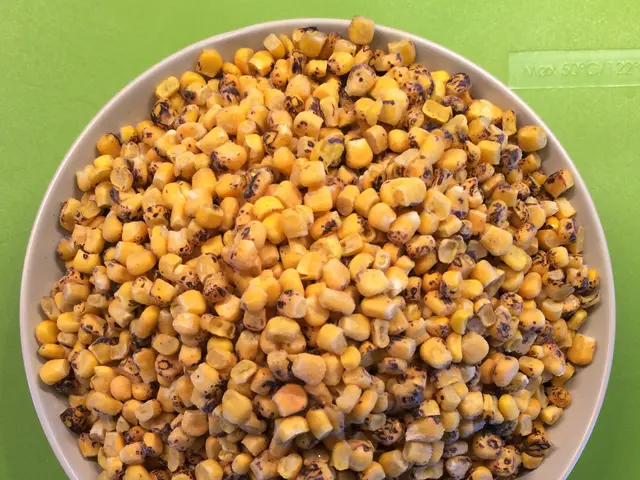Exploring Coffee Consumption: Potential Role in Reducing Colorectal Cancer Incidence
It appears that sipping on your daily brew might just do more than wake you up - according to the World Cancer Research Fund (WCRF), numerous studies point towards a link between coffee consumption and a lower risk of colorectal and bowel cancer.
Research published in the International Journal of Cancer found that downing 4 cups of coffee daily could lower your risk of colorectal cancer recurrence by an impressive 32%. This study involved over 1,700 participants with colorectal cancer in stages 1 through 3.
The exact reasons behind this possible connection are still being researched, but some theories include:
- Reducing oxidative stress in the body
- Encouraging good gut bacteria
- Inhibiting tumor growth
- Offering protection against nonalcoholic fatty liver disease
Additionally, the WCRF also refers to findings that coffee drinkers seemed to have a lower risk of colorectal cancer compared to those who abstained.
Interestingly, this research suggests differences between caffeinated and decaffeinated coffee. Caffeinated coffee is associated with a higher risk of rectal cancer, but not colon cancer, hinting that our bodies could metabolize the two types in diverse ways.
To help minimize your risk of colorectal cancer, it's essential to:
- Engage in physical activity regularly
- Maintain a nutritious diet
- Steer clear of tobacco and alcohol
Want to learn more about how coffee might help fight off cancer, or uncover other cancer-fighting foods? Read on!
[1] General Cancer Risk and Coffee Consumption- A 2016 review by the International Agency for Research on Cancer (IARC) concluded that there is no clear association between coffee intake and cancer risk at any body site, including colorectal cancer[1].- Some evidence points towards coffee potentially reducing the occurrence of certain cancers, though this isn't yet definite[1].
[2] Coffee and Colorectal Cancer-Specific Evidence- Coffee consumption is considered part of an anti-inflammatory diet, which has been associated with improved outcomes and survival after colon cancer treatment. This anti-inflammatory diet includes coffee, tea, and vegetables, and contrasts with proinflammatory diets linked to poorer outcomes in stage III colon cancer patients[2][4].- Ongoing research from Harvard suggests coffee may enhance gut health by promoting beneficial gut bacteria, which could be a mechanism underlying its potential protective effects against colon cancer. However, the link between coffee consumption and colon cancer risk remains under study[3].
[3] Caffeinated vs. Decaffeinated Coffee- The data available do not clearly establish the effects of caffeinated versus decaffeinated coffee on colorectal cancer risk. Most studies and reviews consider overall coffee intake without specific factorization in the context of colorectal cancer[1][2][3].- Genetic studies focusing on caffeine levels have pointed out increased risks in other cancers such as lung cancer with higher plasma caffeine levels, but these have not yet revealed conclusive results for colorectal cancer specifically[5].
In summary, current scientific consensus supports no clear link between coffee consumption - irrespective of caffeine content - and a boost in colorectal cancer risk. Instead, moderate consumption as part of an anti-inflammatory diet could offer potential benefits. Keep grabbing that cuppa and enjoy!
- Studies indicate that consuming 4 cups of coffee daily might lower the risk of colorectal cancer recurrence by 32%, as published in the International Journal of Cancer.
- This potentially protective effect against colorectal cancer could be due to several reasons, such as reducing oxidative stress in the body, encouraging good gut bacteria, inhibiting tumor growth, and offering protection against nonalcoholic fatty liver disease.
- Furthermore, the World Cancer Research Fund suggests that coffee drinkers have a lower risk of colorectal cancer compared to those who abstain from coffee.
- Interestingly, research suggests differences between caffeinated and decaffeinated coffee, with caffeinated coffee being associated with a higher risk of rectal cancer, but not colon cancer.
- To minimize the risk of colorectal cancer, it's essential to maintain a nutritious diet, engage in regular physical activity, and avoid tobacco and alcohol, aside from incorporating moderate coffee consumption as part of an overall anti-inflammatory diet.








